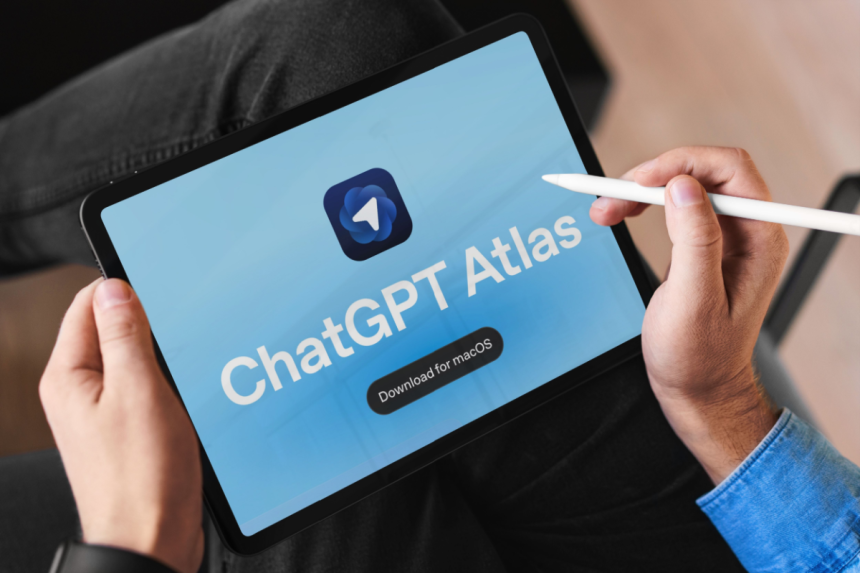OpenAI announced on Tuesday the launch of its first-ever web browser, Atlas, designed to compete directly with Google Chrome. The new browser, powered by ChatGPT, aims to transform how users interact with the internet by integrating conversational AI directly into the browsing experience.
“Tabs were great, but we haven’t seen a lot of browser innovation since then,” said Sam Altman, OpenAI’s CEO, during a video presentation. “We now have a rare, once-in-a-decade opportunity to rethink what a browser can be — and how we use one.”
How Atlas Works: Browsing Without Searching
Unlike traditional browsers, Atlas replaces the classic URL search bar with a ChatGPT-driven conversational interface. Users will be able to perform tasks, summarize web pages, and gather information without switching tabs or copying and pasting content.
Initially available exclusively for Apple’s Mac computers, Atlas also introduces an advanced “agent mode” — an AI feature that autonomously navigates the web on behalf of the user. It uses browsing history and predictive algorithms to locate information the user is likely to need.
“It’s using the internet for you,” Altman explained, describing Atlas as an assistant that anticipates user intent rather than simply responding to typed queries.
Privacy and Personalization Concerns
Not everyone is convinced. Paddy Harrington, an analyst at Forrester in London, warned that Atlas could blur the line between personalization and manipulation. “Your profile will be personally attuned to you based on all the information sucked up about you,” he told the Associated Press. “But is it really you — or what that engine decides you should see?”
Harrington added that Atlas faces an uphill battle against Chrome’s dominance: “It’s a big challenge to compete with a giant who has a ridiculous market share.”
Atlas Enters a Chrome-Dominated Market
Since its 2008 debut, Google Chrome has grown to more than 3 billion users worldwide, dwarfing competitors like Microsoft’s Edge and Mozilla Firefox. Yet the rise of AI tools such as ChatGPT has begun reshaping user behavior, with many preferring to get summarized answers directly from chatbots instead of scrolling through search results.
OpenAI reports that ChatGPT now has over 800 million users. A recent survey conducted for the Associated Press found that 60% of Americans — and 74% of those under 30 — use AI to find information at least occasionally. In response, browsers like Chrome have started embedding AI-generated summaries above traditional search links.
Ongoing Questions About AI Accuracy
However, the reliability of AI-generated information remains a major concern. A joint study from the European Broadcasting Union (EBU) and the BBC found that 45% of AI-generated responses contained at least one major factual issue, while 81% included some kind of inaccuracy.
The study evaluated assistants such as ChatGPT, Gemini, Copilot, and Perplexity in 14 languages, highlighting problems with sourcing and distinguishing fact from opinion. In one example, ChatGPT confidently identified Pope Francis as the current pontiff months after his reported death, underscoring the risks of outdated or incorrect data.
“When people don’t know what to trust, they end up trusting nothing at all,” said Jean Philip De Tender, media director at the EBU. “And that can deter democratic participation.”






